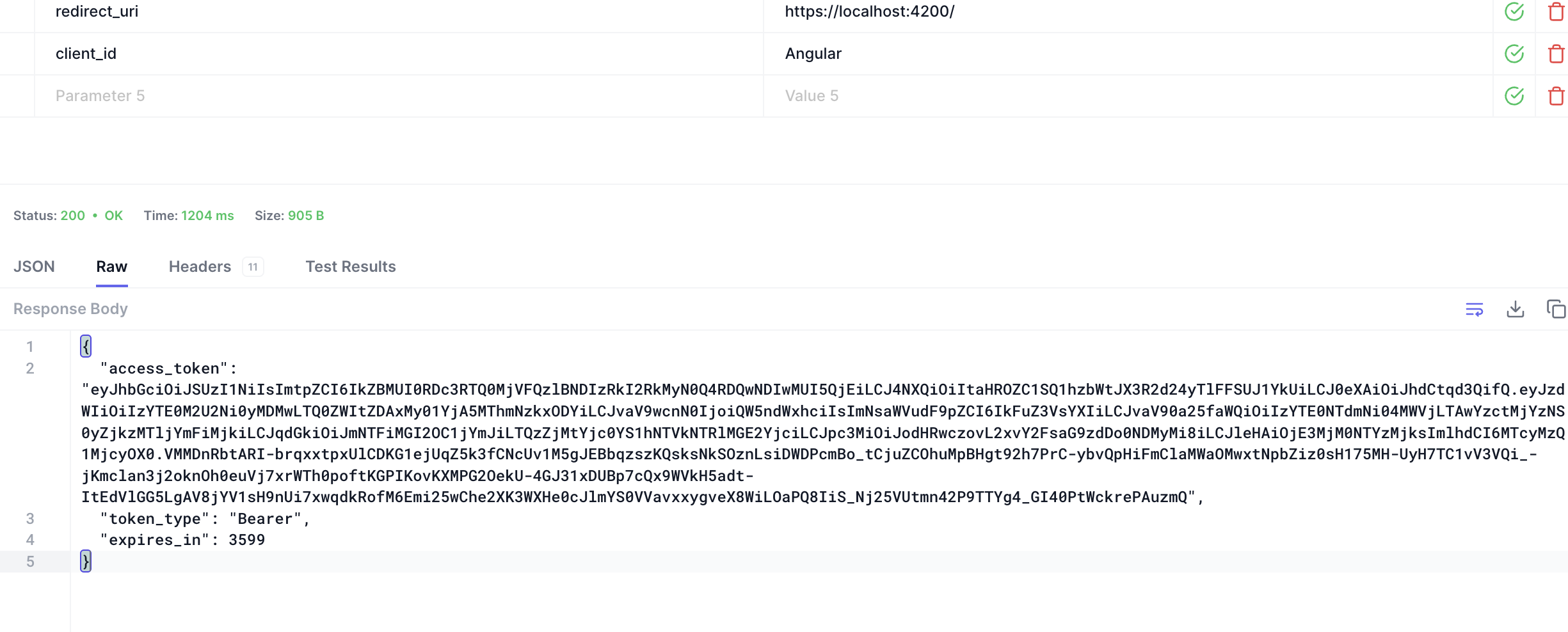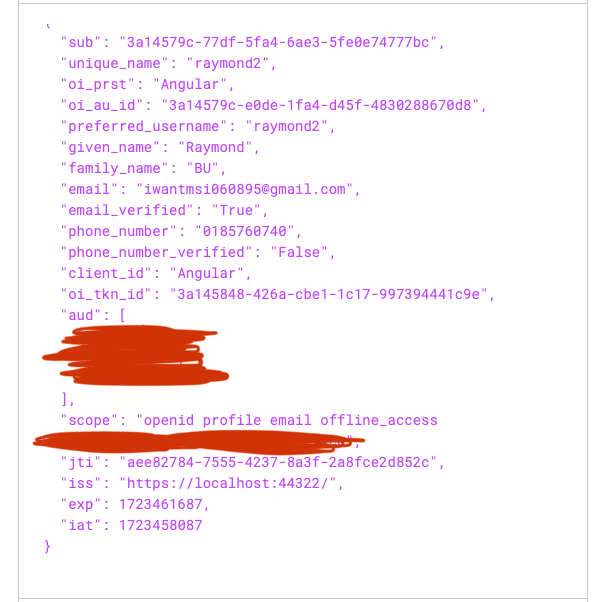- ABP Framework version: v8.0.1
- UI Type: Angular
- Database System: MySQL&MongoDB
- Tiered (for MVC) or Auth Server Separated (for Angular): yes
We had an MVC AuthServer and a seperate web in Angular. Is there any possible that after calling an api, and we do a passwordless login, able to set the local storage just like this?
Attached with previous question regarding passwordless login
15 Answer(s)
-
0
hi
As a clarification, have you already obtained the token via the new grant type in angular?
-
0
-
0
If you want to get the refresh_token at the same time, you can try to add an
offline_accessscope. -
0
i mean, anyway that able to set to the local storage by calling the connect/token api with custom grant type?
-
0
hi
You can use Ajax, call the token endpoint to get the tokens, and then you can store them to local storage.
-
0
-
0
hi
These are obtained by code flow. You are using a custom grant type.
You already have the access_token. You can call api to get any info.
-
0
Hi, yup i noticed i used a custom grant type, however if i want it to be same as code flow by using this custom grant type with passwordless, is it able to do it?
-
0
hi
You already did it. You have the access_token, which means you have logged in.
-
0
but the granted scope and refresh token? how do i get those
-
0
-
0
hi
Please share the code of your grant type.
-
0
public class CustomTokenExtension : AbpOpenIdDictControllerBase, ITokenExtensionGrant { public const string ExtensionGrantName = "auto_token"; public string Name => ExtensionGrantName; public async Task<IActionResult> HandleAsync(ExtensionGrantContext context) { var signInManager = context.HttpContext.RequestServices.GetRequiredService<AbpSignInManager>(); // var principal = (await HttpContext.AuthenticateAsync(OpenIddictServerAspNetCoreDefaults.AuthenticationScheme)).Principal; // principal = await AbpClaimsPrincipalFactory.CreateDynamicAsync(principal); var uid = context.Request.GetParameter("u").ToString(); if (string.IsNullOrEmpty(uid)) { return new ForbidResult( new[] { OpenIddictServerAspNetCoreDefaults.AuthenticationScheme }, properties: new AuthenticationProperties(new Dictionary<string, string> { [OpenIddictServerAspNetCoreConstants.Properties.Error] = OpenIddictConstants.Errors.InvalidRequest }!)); } if (!Guid.TryParse(uid, out var userId)) { return new ForbidResult( new[] { OpenIddictServerAspNetCoreDefaults.AuthenticationScheme }, properties: new AuthenticationProperties(new Dictionary<string, string> { [OpenIddictServerAspNetCoreConstants.Properties.Error] = OpenIddictConstants.Errors.InvalidRequest }!)); } // var userId = principal.FindUserId(); var userManager = context.HttpContext.RequestServices.GetRequiredService<IdentityUserManager>(); var user = await userManager.GetByIdAsync(userId); var userClaimsPrincipalFactory = context.HttpContext.RequestServices.GetRequiredService<IUserClaimsPrincipalFactory<Volo.Abp.Identity.IdentityUser>>(); var principal = await signInManager.CreateUserPrincipalAsync(user); await signInManager.SignInAsync(user, isPersistent: false); //For abp version >= 7.3 await context.HttpContext.RequestServices.GetRequiredService<AbpOpenIddictClaimsPrincipalManager>().HandleAsync(context.Request, principal); return new Microsoft.AspNetCore.Mvc.SignInResult(OpenIddictServerAspNetCoreDefaults.AuthenticationScheme, principal); } -
0
hi
Try to set the scope to your
principal.principal.SetScopes(your scopes array); principal.SetResources(await GetResourcesAsync(context, principal.GetScopes())); -
0
Which object is
null? Is itCurrentTenant? If so you can get service fromHttpContext.var CurrentTenant = context.HttpContext.RequestServices.GetRequiredService<ICurrentTenant>()




